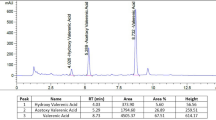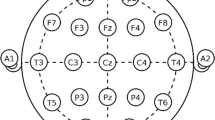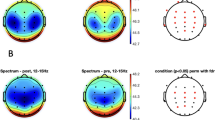Abstract
Sleep is an essential human activity, and medical studies have found that long-term poor sleep quality can contribute to the development of mental disorders and cardiovascular disease. The electroencephalogram (EEG) is a direct indicator of states of consciousness and brain function and can be used to detect sleep quality. This study develops a model for evaluating sleep quality through the fast Fourier transform and fuzzy Petri nets. The proposed EEG-based sleep quality detection model was found to provide an 82.4% increase in assessment accuracy when compared against other data mining methods. Moreover, this study explored the effect of various pre-sleep activities on subsequent sleep quality. Using mobile electronic devices for Internet browsing, watching videos, or playing games before sleeping was found that changes in brainwave power occur in the α, β, θ, and the overall frequency bands (observations of brain activity are often explained in terms of different frequency bands, alpha, beta, and theta bands are 8~13 Hz, 13~30 Hz, and 4~8 Hz, respectively), resulting in a moderate deterioration of sleep quality. Among these activities, watching videos had the most significant effect on sleep quality for both males and females. Furthermore, all three tested bedtime activities were found to have a more pronounced effect on the sleep quality of female subjects, while watching videos had a disproportionate effect on male subjects.





Similar content being viewed by others
References
Bajaj V, Pachori RB (2013) Automatic classification of sleep stages based on the time-frequency image of EEG signals. Comput Methods Progr Biomed 112(3):320–328. https://doi.org/10.1016/j.cmpb.2013.07.006
Buchanan BG, Shortliffe (1984) Rule-based expert systems: the MYCIN experiments of the Stanford heuristic programming project. Addison-Wesley Longman Publishing Co., Inc., Boston
Buysse DJ, Reynolds CF, Monk TH et al (1989) The Pittsburgh Sleep Quality Index: a new instrument for psychiatric practice and research. Psychiatry Res 28(2):193–213. https://doi.org/10.1016/0165-1781(89)90047-4
Chen SM (1996) A fuzzy reasoning approach for rule-based systems based on fuzzy logics. IEEE Trans Syst Man Cybern Part B Cybern 26(5):769–778. https://doi.org/10.1109/3477.537318
Chen SM (2002) Weighted fuzzy reasoning using weighted fuzzy Petri nets. IEEE Trans on Knowl Data Eng 14(2):386–397. https://doi.org/10.1109/69.991723
Chen SM, Chung NY (2006) Forecasting enrollments of students using fuzzy time series and genetic algorithms. Int J Inf Manag Sci 17(3):1–17. https://doi.org/10.1002/0470024569.ch1
Chen SM, Hsiao WH (2000) Bidirectional approximate reasoning for rule-based systems using interval-valued fuzzy sets. Fuzzy Sets Syst 113(2):185–203. https://doi.org/10.1016/S0165-0114(98)00351-0
Chen SM, Ke JS, Chang JF (1990) Knowledge representation using fuzzy Petri nets. IEEE Trans Knowl Data Eng 2(3):311–319. https://doi.org/10.1109/69.60794
Chen SM, Ke JS, Chang JF (1992) Fuzzy reasoning based on fuzzy Petri nets. Int J Inf Manag Sci 3(1):39–52
Chiang HS, Wu ZW (2017) Online incremental learning for sleep quality assessment using associative Petri Net. Appl Soft Comput. https://doi.org/10.1016/j.asoc.2017.07.049
Christensen R (1980) Entropy minimax sourcebook, vols 1–4, and Fundamentals of inductive reasoning. Entropy Ltd., Lincoln
Cohen DC, Eisdorfer C, Prize P et al (1983) Sleep disturbances in the institutionalized aged. J Am Geriatr Soc 31(2):79–82. https://doi.org/10.1111/j.1532-5415.1983.tb05419.x
Ejindu A (2007) The effects of foot and facial massage on sleep induction, blood pressure, pulse and respiratory rate: crossover pilot study. Complement Ther Clin Pract 13(4):266–275. https://doi.org/10.1016/j.ctcp.2007.03.008
Ferri R, Zucconi M, Rundo F et al (2007) Heart rate and spectral EEG changes accompanying periodic and non-periodic leg movements during sleep. Clin Neurophysiol 118(2):438–448. https://doi.org/10.1016/j.clinph.2006.10.007
Horng YJ, Chen SM, Chang YC, Lee CH (2005) A new method for fuzzy information retrieval based on fuzzy hierarchical clustering and fuzzy inference techniques. IEEE Trans Fuzzy Syst 13(2):216–228. https://doi.org/10.1109/TFUZZ.2004.840134
Kenney SR, LaBrie JW, Hummer JF et al (2012) Global sleep quality as a moderator of alcohol consumption and consequences in college students. Addict Behav 37(4):507–512. https://doi.org/10.1016/j.addbeh.2012.01.006
Ko YL, Lee HJ (2014) Randomised controlled trial of the effectiveness of using back massage to improve sleep quality among Taiwanese insomnia postpartumwomen. Midwifery 30(1):60–64. https://doi.org/10.1016/j.midw.2012.11.005
Koley B, Dey D (2012) An ensemble system for automatic sleep stage classification using single channel EEG signal. Comput Biol Med 42(12):1186–1195. https://doi.org/10.1016/j.compbiomed.2012.09.012
Leistedt S, Dumont M, Lanquart JP et al (2007) Characterization of the sleep EEG in acutely depressed men using detrended fluctuation analysis. Clin Neurophysiol 118(4):940–950. https://doi.org/10.1016/j.clinph.2007.01.003
Lerner R (1982) Sleep loss in the aged: implications for nursing practice. J Gerontol Nurs 8:323–328. https://doi.org/10.3928/0098-9134-19820601-04
Liao WC, Landis CA, Lentz MJ et al (2005) Effect of foot bathing on distal-proximal skin temperature gradient in elders. Int J Nurs Stud 42(7):717–722. https://doi.org/10.1016/j.ijnurstu.2004.11.011
Liao WC, Wang L, Kuo CP et al (2013) Effect of a warm footbath before bedtime on body temperature and sleep in older adults with good and poor sleep: an experimental crossover trial. Int J Nurs Stud 50(12):1607–1616. https://doi.org/10.1016/j.ijnurstu.2013.04.006
Looney CG (1988) Fuzzy Petri nets for rule-based decisionmaking. IEEE Trans Syst Man Cybern 18(1):178–183. https://doi.org/10.1109/21.87067
Morin CM, Bootzin RR, Buysse DJ et al (2006) Psychological and behavioral treatment of insomnia: update of the recent evidence (1998–2004). Sleep 29(11):1398–1414. https://doi.org/10.1093/sleep/29.11.1398
Passarella S, Duong MT (2008) Diagnosis and treatment of insomnia. Am J Health Syst Pharm 65(10):927–934. https://doi.org/10.2146/ajhp060640
Pedrycz W, Chen SM (2015a) Information granularity, big data, and computational intelligence. Springer, Heidelberg
Pedrycz W, Chen SM (2015b) Granular computing and decision-making: interactive and iterative approaches. Springer, Heidelberg
Raymann RJ, Swaab DF, Van Someren EJ (2007) Skin temperature and sleep-onset latency: changes with age and insomnia. Physiol Behav 90(2):257–266. https://doi.org/10.1016/j.physbeh.2006.09.008
Ross TJ (2009) Fuzzy logic with engineering applications. Wiley, Chichester
Saletu-Zyhlarz GM, Abu-Bakr MH, Anderer P et al (2002) Insomnia in depression: differences in objective and subjective sleep and awakening quality to normal controls and acute effects of trazodone. Prog Neuropsychopharmacol Biol Psychiatry 26(2):249–260. https://doi.org/10.1016/S0278-5846(01)00262-7
Shih DH, Chiang HS, Lin B, Lin SB (2010) An embedded mobile ECG reasoning system for elderly patients. IEEE Trans Inf Technol Biomed 14(3):854–865. https://doi.org/10.1109/TITB.2009.2021065
Shum A, Taylor BJ, Thayala J, Chan MF (2014) The effects of sedative music on sleep quality of older community-dwelling adults in Singapore. Complement Ther Med 22(1):49–56. https://doi.org/10.1016/j.ctim.2013.11.003
Snyder-Halpern R, Verran JA (1987) Instrumentation to describe subjective sleep characteristics in healthy subjects. Res Nurs Health 10(3):155–163. https://doi.org/10.1002/nur.4770100307
Sugi T, Kawana F, Nakamura M (2009) Automatic EEG arousal detection for sleep apnea syndrome. Biomed Signal Process Control 4(4):329–337. https://doi.org/10.1016/j.bspc.2009.06.004
Trojan DA, Kaminska M, Bar-Or A et al (2012) Polysomnographic measures of disturbed sleep are associated with reduced quality of life in multiple sclerosis. J Neurol Sci 316(1):158–163. https://doi.org/10.1016/j.jns.2011.12.013
Wang HY, Chen SM (2008) Evaluating students’ answerscripts using fuzzy numbers associated with degrees of confidence. IEEE Trans Fuzzy Syst 16(2):403–415. https://doi.org/10.1109/TFUZZ.2007.895958
Wang CF, Sun YL, Zang HX (2014) Music therapy improves sleep quality in acute and chronic sleep disorders: a meta-analysis of 10 randomized studies. Int J Nurs Stud 51(1):51–62. https://doi.org/10.1016/j.ijnurstu.2013.03.008
Acknowledgements
The authors would like to give thanks to the Ministry of Science and Technology of Taiwan for Grant MOST 103-2410-H-025-017.
Author information
Authors and Affiliations
Corresponding author
Rights and permissions
About this article
Cite this article
Chiang, HS., Chen, MY. & Wu, ZW. Applying fuzzy petri nets for evaluating the impact of bedtime behaviors on sleep quality. Granul. Comput. 3, 321–332 (2018). https://doi.org/10.1007/s41066-017-0069-y
Received:
Accepted:
Published:
Issue Date:
DOI: https://doi.org/10.1007/s41066-017-0069-y




